Three chilling words written on CEO bullets
Police investigating the cold-blooded killing of a major CEO in the US have made a chilling discovery on the bullets used.
The at-large suspect who gunned down UnitedHealthcare CEO Brian Thompson outside a hotel in New York left a message on the bullets he used to kill the executive, according to police sources.
The NYPD is investigating the possible message — which appears to include the words “deny,” “depose” and “defend” — engraved on live rounds and shell casings left behind by the masked assassin after he shot Mr Thompson, 50, several times at about 6.46am local time before fleeing, the sources said.
The words are possible attacks on the health insurance industry, in which Mr Thompson was one of the most powerful leaders — and strikingly similar to a 2010 book condemning the business called Delay, Deny, Defend: Why insurance companies don’t pay claims and what you can do about it.
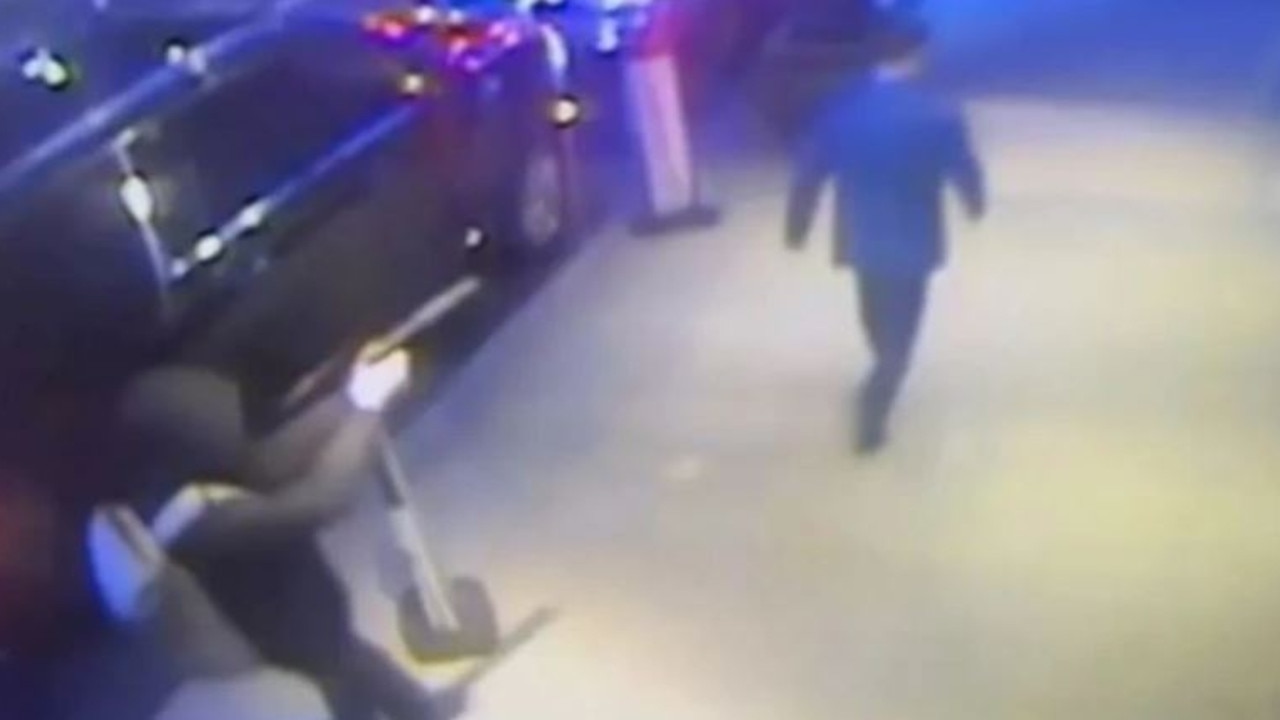
Police are looking at possible ties to the book, as well as more general references to the health industry, as a potential motive, sources told The New York Post.
The book’s author, Jay M. Feinman — a distinguished professor emeritus at Rutgers Law School in New Jersey — declined to comment.
The blurb says the book exposes “insurance injustice” and gives a plan for consumers and lawmakers to fight back
“An insurance company’s greatest expense is what it pays out in claims,” wrote Mr Feinman, an emeritus professor. “If it pays out less in claims, it keeps more in profits.”
Police had recovered three live 9-millimeter rounds and three discharged casings in front of the Hilton hotel on Sixth Avenue, where Mr Thompson, of Minnesota, was set to host an investors’ conference that morning, police officials said.
Sources said several of the pieces of evidence each contained one word, indicating the killer may have been trying to leave a message as investigators try to piece together a motive.
Mr Thompson’s estranged wife, Paulette “Pauley” Thompson, 51, told NBC News hours after the murder that the CEO had been getting “some threats.”
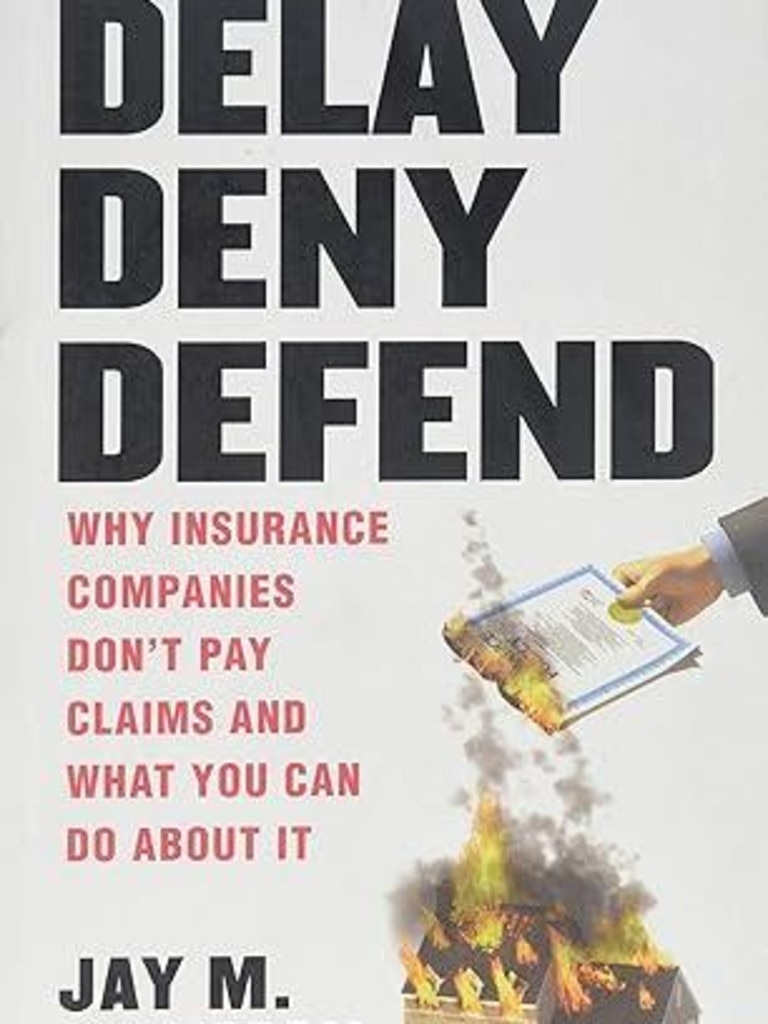
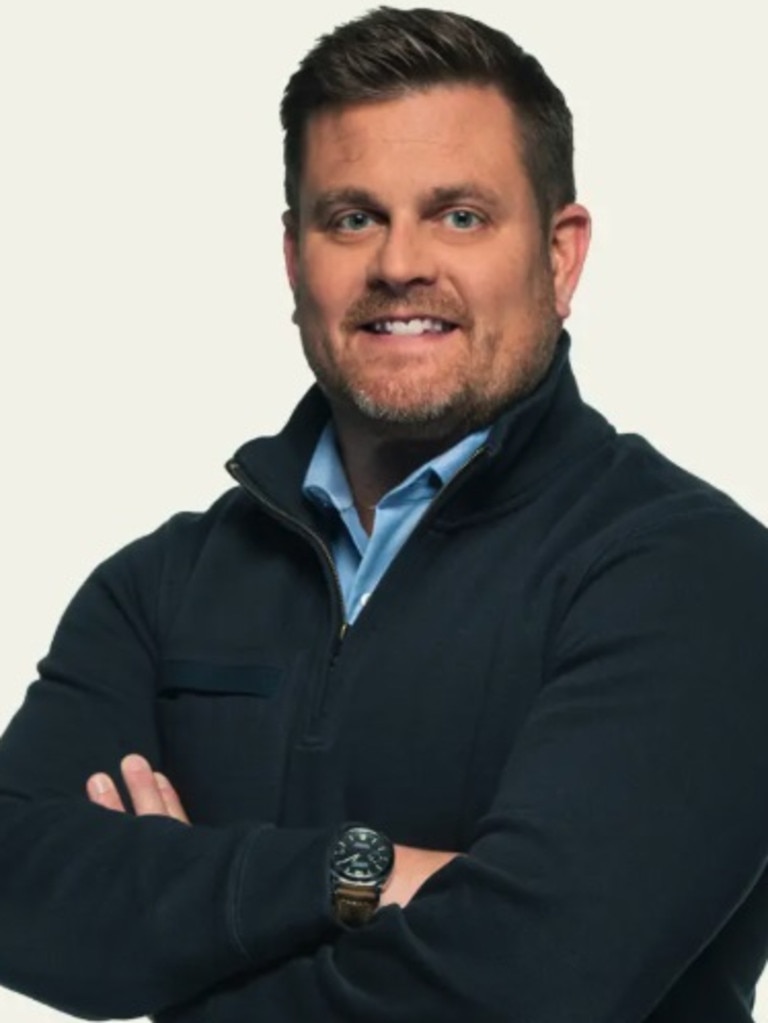
“Basically, I don’t know, a lack of coverage?” she said, suggesting it was tied to her husband’s job.
“I don’t know details. I just know that he said there were some people that had been threatening him.”
The masked gunman used a silencer and appeared to be an experienced shooter based on surveillance footage.
He was seen waiting outside the luxury hotel for his target — the CEO with a yearly salary of nearly $9.9 million — before he calmly fired off multiple shots at close range, causing Mr Thompson to stumble and collapse.
The gun had jammed but the killer was able to clear it — showing he was a skilled gunman — and continue firing as his victim who tried to crawl away.
The suspect then ran into an alleyway and hopped on an e-bike, which he rode north along Sixth Avenue into Central Park, where surveillance camera coverage is spotty, police said.
But the suspect may have made mistakes that could help investigators identify him.
He bought coffee, a water bottle and two PowerBars at a nearby Starbucks before the killing and tossed his bottle and coffee cup in a trash can — which cops dug out of the garbage and now have as evidence, according to sources.
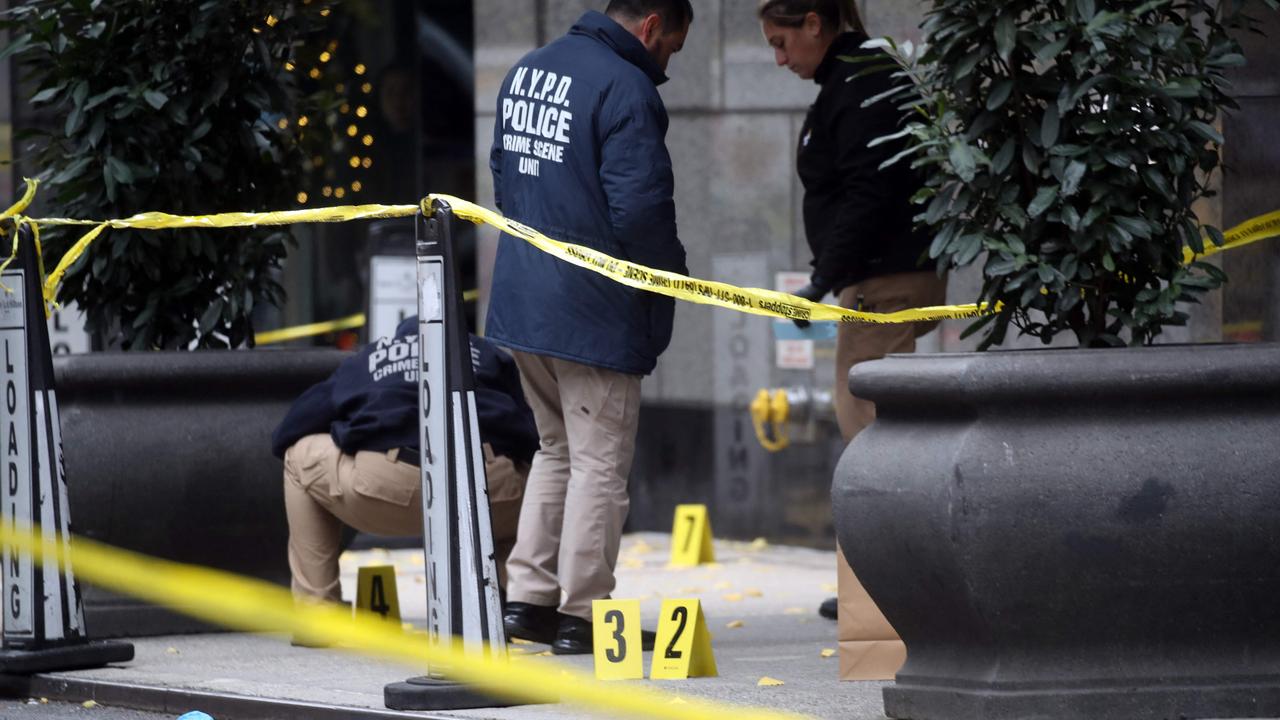
Investigators also discovered a phone in an alleyway near the Hilton which they believe belongs to the killer, the sources said. Investigators have obtained a search warrant to comb through the contents of the phone.
The lot of evidence could also help investigators to determine a motive for the execution-style hit.
“Based on the evidence we have so far, it does appear that the victim was specifically targeted,” NYPD Chief of Detectives Joe Kenny said at an earlier conference. “But at this point, we do not know why. This does not appear to be a random act of violence.”
Mr Thompson led the country’s largest private health insurer, which has a controversial history of rejecting customers’ claims and is facing a Department of Justice antitrust investigation.
However, he was well respected in his field and was a husband and dad of two sons in Minnesota.
The CEO was rushed to Mount Sinai West Hospital after he was shot and he was pronounced dead at 7.12am local time, police said.
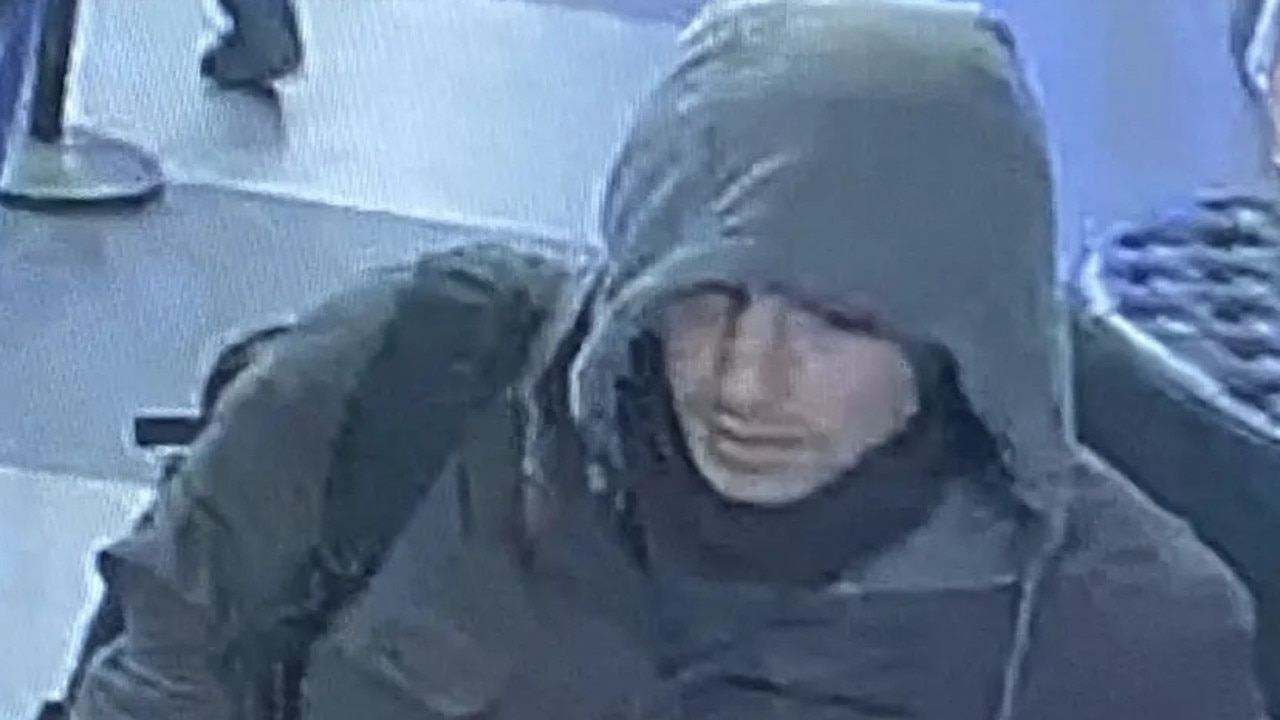
UnitedHealthcare informed investigators that Mr Thompson had been the recipient of threats — though the source noted it’s not uncommon for someone in his position at a health care company.
A manhunt for the suspect is underway and the NYPD is offering a $10,000 reward for information.
Company’s history of denying claims
As one of the largest health insurers in the US, covering more than 50 million people, UnitedHealthcare has battled complaints and investigations from patients, doctors and politicians over its denial of medical claims.
Unlike Australia, there is no universal healthcare in the states and the way that claims are denied is a murky process — as the insurance corporations are generally not required to publish data on how many claims have been turned down.
Americans who bought coverage under Obamacare, a government-funded plan, had 17 per cent of their care denied in 2021, according to KFF, a health policy group.
Other surveys have found denials are more common among those with private insurance than those who carried government coverage.
UnitedHealthcare, part of the giant conglomerate UnitedHealth Group, reported more than $16 billion in profits last year — meaning it has become one of the most heavily criticised insurers in the nation.
Earlier this year, a Senate committee in the US investigated insurance plans denying nursing care to patients who were recovering from falls and strokes.
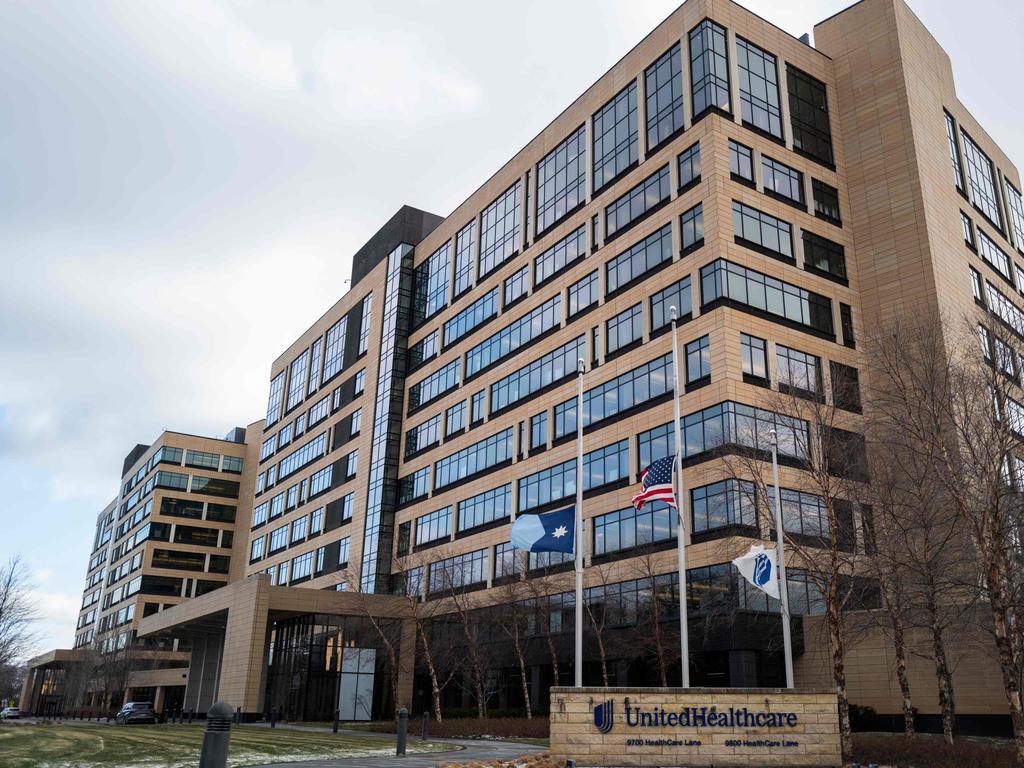
It found three major companies — UnitedHealthcare, Humana and CVS, which owns Aetna — were intentionally denying claims for this expensive care to increase profits.
According to the report, UnitedHealthcare denied requests for nursing facility stays at a rate three times higher than for other services.
There have also been concerning stories in the media about UnitedHealthcare this year.
Health news outlet Stat published a detailed investigation into how a UnitedHealthcare subsidiary, NaviHealth pressured its medical staff to cut off payments for seriously ill patients in lock-step with a computer algorithm’s calculations.
This resulted in the company denying rehabilitation care for older and disabled Americans as profits soared.
UnitedHealth Group has repeatedly told the publication its algorithm, which predicts how long patients will need to stay in rehab, is merely a guide for their recoveries.
However, Stat reported that inside the company, managers delivered a much different message: that the algorithm was to be followed precisely so payment could be cut off by the date it predicted.
UnitedHealthcare and its parent company now face a class-action lawsuit over its use of the algorithm.
And in 2023, a shocking case came to light involving a university student, Christopher McNaughton, who suffered from a crippling case of ulcerative colitis — an ailment that caused him to develop severe arthritis, debilitating diarrhoea, numbing fatigue and life-threatening blood clots.
The story from ProPublica showed Mr McNaughton racked up $2 million in medical claims a year, whilse United disregarded an internal report finding the expensive treatment to be necessary. The patient eventually sued United and received an undisclosed amount in a settlement.
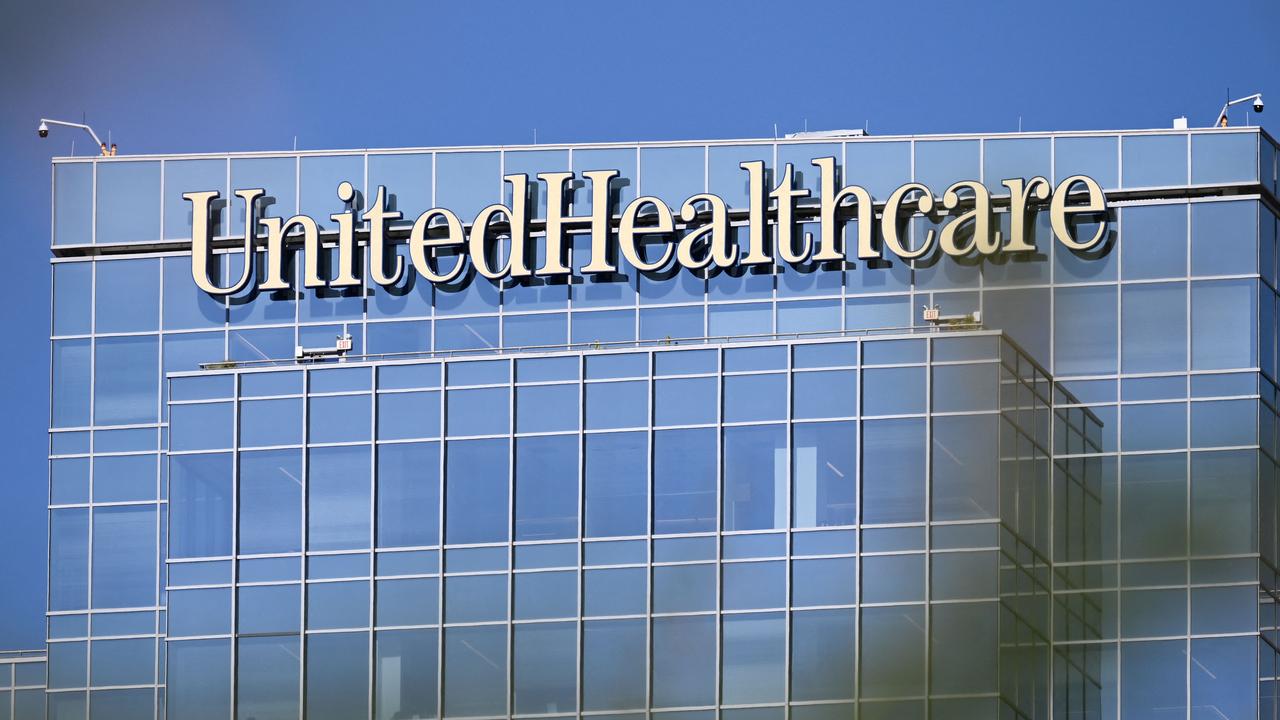
Fury over healthcare
Frustrations extend beyond the coverage of care. Expensive breakthrough medications to slow Alzheimer’s disease or help with obesity are frequently not covered or have coverage limits.
“Many Americans view these companies as driven by profit rather than a commitment to serve their customers,” said Mario Macis, a Johns Hopkins economist who studies trust in the health care system. “And this creates a big disconnect.”
In the US, patients get coverage through a mix of private insurers such as UnitedHealthcare and government-funded programs such as Medicaid and Medicare.
The system can prove frustrating for doctors and patients because coverage often varies by insurer.
Polls reflect those frustrations with the health care system in general and insurance companies in particular.
About two-thirds of Americans said health insurance companies deserve “a lot of blame” for high health care costs, according to a KFF poll conducted in February.
Since the Mr Thompson’s death there has been renewed pressure and frustration piled on health insurance companies in the US, by angry citizens. Some have even gone as far as to celebrate the CEO’s death.
The insurance industry has hit back at the some of the language being used.
“The people in our industry are mission-driven professionals working to make coverage and care as affordable as possible and to help people navigate the complex medical system,” said Michael Tuffin, the president of AHIP, a major trade group, on LinkedIn.
“We condemn any suggestion that threats against our colleagues — or anyone else in our country — are ever acceptable.”
Investors also appear to be concerned about the developments.
On Thursday, UnitedHealth Group’s share price slumped by a hefty 5.2 per cent as New York police continued to search for Mtr Thompson’s killer.
Other insurers such as Cigna and Humana also fell, by 1.7 per cent and 2.3 per cent respectively.




